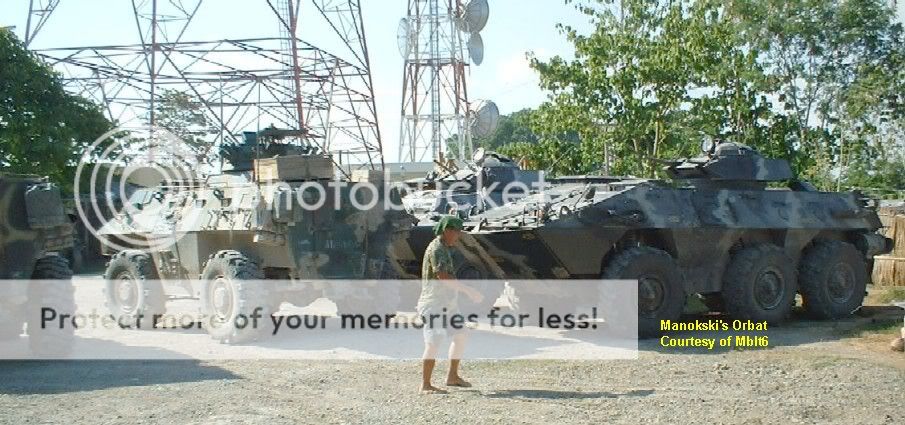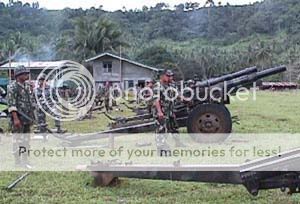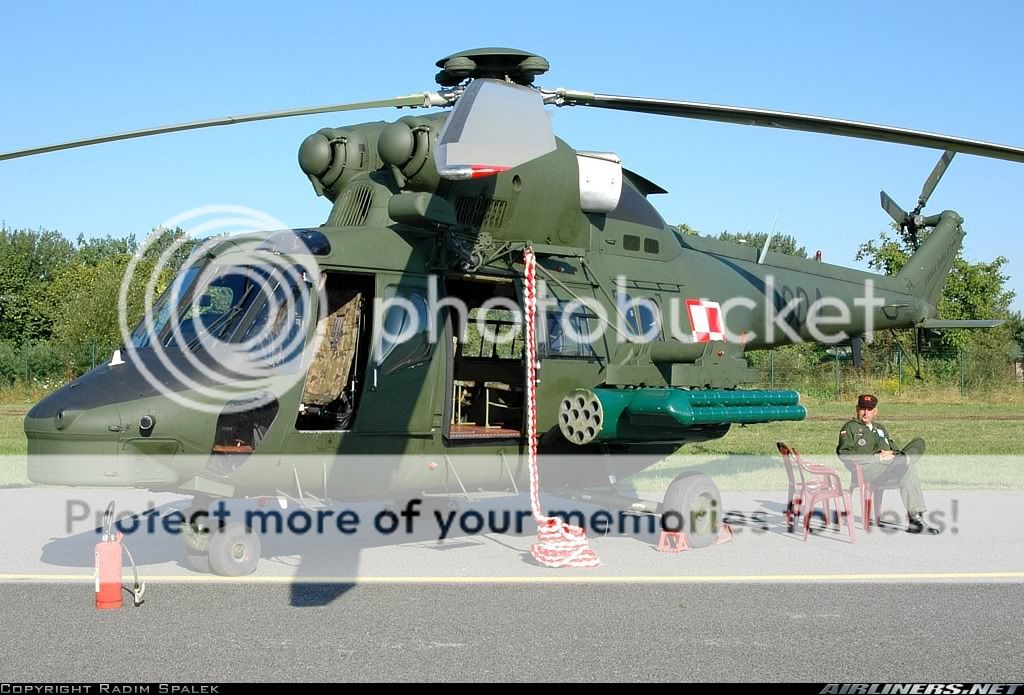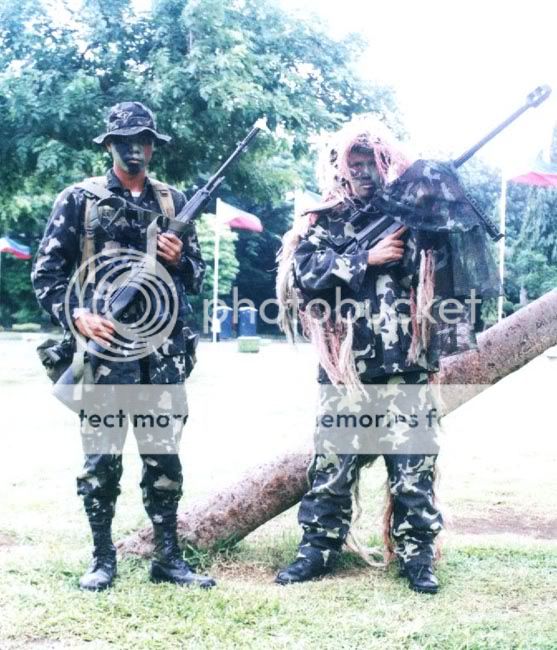Presidential Security Group
The Presidential Security Group (PSG) is the lead agency tasked in providing security for the President of the Philippines, Vice President of the Philippines, and their immediate families. Most of the force maintain position at the Malacaņang Palace, the official residence of the President while some of PSG always accompanied by the President in his tours around the country and the world.
Role and Function
The role of the PSG is to provide protective security of the following:
The President and Vice President of the Philippines.
The immediate families of the above individuals.
Former presidents their immediate families.
Former vice presidents their immediate families.
The Malacaņang Palace.
Cabinet member or the Malacaņang officials
Visiting heads of states or diplomats and their spouses traveling with them.
The Presidential Security Group can also have a different function such as proving support from different government agency and conduct and provide assistance to the AFP and PNP in its anti-organized crime undertakings as per orders from the President. They also conduct Community Service efforts to local communities and maintain and secure all facilities and transportation assets used by the Office of the President and Vice President in doing its regular and non-regular functions.
Recruitment and Training
Most PSG recruits come from the different branch of AFP, but some operators have come from other units of the Philippine National Police special unit like PNP SWAT and Special Action Force. Some PSG recruits today also come from the Philippine Coast Guard.
Due to the importance of the PSG's protective function, the personnel of the agency receive the latest weapons, equipment and training program. PSG are trained abroad by different counter-terrorism unit such as the US FBI HRT, SAS, US Delta Force and Israel's Mossad. They have also cross-trained with other local special units, such as the PNP SAF and Army Special Forces Regiment.
During the term of then President Marcos, the Presidential Security Command started their day with various physical exercises. They held daily runs and the troops sharpened their skills in unarmed/ hand to hand combat. It also held drills and practice parades at least once a week to hone their discipline and skill as honor guards. They conducted special training for handling firearms, civil-disturbance control, urban guerrilla warfare, jungle warfare, mountain operations, small unit operations, air mobility, amphibious operations and airborne courses.
Those who complete the special training, the members advance to Counterterrorist Action, Combat Assault, Defensive Driving, Basic and Advanced Practical Pistol Shooting, Security Advance Party Procedures, Urban Combat, Special Weapons Training, Special Reaction Training, tae kwon do, Mechanized Infantry Tactics and Crisis Management.
Guardsmen train regularly in such specialized courses as Hostage Negotiation, Anti-terrorist Operation, Advanced Explosive Incidents Countermeasures, Maritime Security Reaction, Bomb Detection and Dog Handling.
All members must and is required to attend the PSG Training School that is situated Baguio City before they are given special assignments in the various sub-units of the command.
Results 11 to 20 of 538
Thread: Philippine Special Forces
-
04-07-2011, 09:22 PM #11
 Re: Philippine Special Forces
Re: Philippine Special Forces
Last edited by Deadstring67; 01-24-2012 at 05:38 PM.
-
04-07-2011, 09:35 PM #12
 Re: Philippine Special Forces
Re: Philippine Special Forces
710th Special Operations Wing

The 710th Special Operations Wing is the rapid deployment force of the Philippine Air Force (PAF), which is divided into ten-man airborne attack teams as most of its members are airborne qualified.
The wing also controls the 772nd Explosives and Ordnance Squadron and the 773rd K-9s Kennels
Tasks
The mission of the 710th Special Operations Wing include the following:
Conduct contingency operations against hostile elements and civilian mass actions.
Co-ordination of air strikes
Explosive Ordnance Disposal operations; K-9 and handler training on explosives and bomb detection
Civil disturbance control
Honour/ceremonial functions of the Philippine Air Force.
Having proven its capability during times of crisis, this Villamor-based wing has been recently transferred to Clark Air Base to assist the 600th Air Base Wing in its security requirements.
Overview
The unit serves as the Air Force’s Workhorse in dealing with Special Operations and supports the AFP’s thrust for intensified Internal Security Operations (ISO). In line with its mission, the elite group of combatants has accomplished numerous ISO related tasks for the first quarter of this year. With the occurrence of bomb scares and terrorist attacks heightening in the country, the Wing has conducted a total of 919 K-9 paneling operations to different PAF bases and installations as well as routine paneling to different AFP installations including civilian offices and agencies.
A total of 7 dispatches for Explosive Ordnance Disposal (EOD) personnel responded to bomb threats as requested by concerned citizens from Angeles City, to as far as Jolo, Sulu. The wing also conducted Interoperability Operations with the elements from 202nd Bde and 15th Strike Wing last February, in the First District of Batangas. Also in the same month, personnel from the 750th Combat Group conducted a joint ACTAF, NAKTAF, PACER and NCRPO in Cubao, Quezon City which resulted to the rescue of KFR victim Kenshi Yu (also known as Ken-ken), and the apprehension of Mitchelle Gumabao Yap a.k.a. Dennis Roldan. Aside from these operations, the Combat Groups of the 710th SPOW, in an effort to protect the environment, conducted Anti-Illegal Logging Operations within the AOR of Batangas, Cavite and Quezon. Strongly driven by the motto, “Train Hard, Fight Easy” the unit continues to upgrade and conduct highly-specialised training for its officers and personnel to better address the pressing problems related to internal security. To date, 29 classes of varied special operation courses have been accomplished.
The humanitarian side of the Wing was once again seen during the 710th SPOW 13th Foundation Anniversary last 2 July 2004 when the Wing conducted Military Civic Action Activities (CIVAC) which included administering anti-polio vaccines which benefited 65 children from Brgy. Calumpang, Mabalacat, Pampanga; bloodletting; medical and dental civic action programme (MEDCAP) which benefited a total of 1,628 residents from Calaca, Batangas. Other civil-military operations which benefited thousands of residents from different areas in the country were also conducted early this year. These operations bring the Wing closer to the people, and helps build trust and confidence and respect for the AFP as a whole.
Recent operations
The 710th SPOW has been recently involved in the Manila Peninsula Mutiny after being called in to rein in renegade soldiers led by Senator Antonio Trillanes IV. It is now being headed by Col. Jesus A. Fajardo.Last edited by Deadstring67; 01-24-2012 at 05:40 PM.
-
04-07-2011, 09:45 PM #13
 Re: Philippine Special Forces
Re: Philippine Special Forces

Overview
The Philippine Marine Corps Force Recon Battalion (Marine Force Recon) is the Philippine Naval Fleet's/ Philippine Marine Corps' elite ground forces unit for unconventional warfare and special operations. It specialises in sea, air and land operations, like its counterpart in the Naval Special Warfare Group of the Philippine Navy, ranging from reconnaissance, close combat, demolition, intelligence and underwater operations in support to the overall naval operations.
As the spearhead of the Philippine Armed Forces, Marines of the Marine Corps are "the first to fight" and elements of the Marine Corps Force Reconnaissance Battalion lead the way.
What makes it different from the Naval Special Warfare Group is that it utilizes strategies and tactics mastered by the Philippine Army's 1st Scout Ranger Regiment and Special Forces units.
They also make use of mechanised operations in support of other AFP combat operations as specially inclined with the conduct of special and classified military actions.
All Force Recon Marines are usually airborne and Scout Ranger qualified and most importantly; must finish the Force Reconnaissance Course to qualify.
Like most of the AFP special operations units, the best members of Force Recon Battalion are handpicked to undergo VIP security training and is further assigned with the Presidential Security Group.
-
04-07-2011, 09:50 PM #14
 Re: Philippine Special Forces
Re: Philippine Special Forces
Special Action Force




The Special Action Force is the primary special forces unit of the Philippine National Police. It is formed along the lines of the British Army (SAS) Special Air Service, but with different recruitment and selection procedures. The SAF, over the years, has received training from the FBI's Hostage Rescue Team (HRT) and Critical Incident Response Group, RAID by the French and YAMAM by the Esraeli commando's. The Anti-Terrorist Unit (ATU) of the PNP-SAF is responsible for nationwide Police Counter-terrorism (CT) operations nationwide.
Members or Police trainees who undergo SAF training undergo several special military combat related training such as Basic Airborne course training, urban warfare (SURESHOCK) and internal security (COMMANDO course)
SAF members who are distributed either regionally or within Metro Manila are furthermore assigned to SWAT units or SWAT training units. SAF operators are trained at their camp at Fort Sto. Domingo with its Air Unit stationed at the PNP Hangar in Pasay City.
The SAF has an official magazine known as "Force and Valor"
History
SAF commandos in the 1980s.
Created on May 12, 1983 by the former Philippine Constabulary as the Philippine Constabulary Special Action Force as a requirement of General Order 323 of Philippine Constabulary Headquarters, Fidel Ramos and Renato de Villa were the founders of the unit. De Villa asked Col. Rosendo Ferrer and Gen. Sonny Razon to organize a Special Action Force.
After which, a training program called the SAF Ranger Course, was used to train the 1st generation of SAF operators, which had a number of 149 operatives. Out of them, 26 were known commissioned officers. Later on, they changed the name of the course to the SAF Commando Course.
Initially formed to battle against NPA and former MNLF guerillas in the late 1980s and early 1990s, their tasks have been expanded to battle against organized criminal groups, terrorists, guerrillas and common criminals.
During the days of the EDSA Revolution, Fidel Ramos was involved in planning an operation called "Exercise Ligtas Isla" (Exercise Save Island) in case either Imelda Marcos or Armed Forces of the Philippines Chief of Staff General Fabian Ver would take over ruling from Ferdinand Marcos, who had been ill during the last few days of the Revolution.
Following recent changes, the SAF will move to a permanent camp at Barangay Pinugay, Baras, Rizal under Proclamation No. 1355 passed on August 2007 from their camp in Camp Bagong Diwa in Taguig.
For the first time, SAF operators are involved in the Balikatan exercises in 2009 since American and Filipino troops are usually involved.
Functions
As designated by the Philippine National Police, the missions of the Special Action Force are the following:[13][17]
To develop, organise and train organic personnel in the furtherance of the assigned mission.
To conduct Counter-Terrorist operation in urban and rural areas.
To conduct commando type unconventional warfare (CUW) against lawless elements over extended periods of time with minimal direction and control.
To conduct search and rescue operations anywhere in the country during calamities and catastrophes.
To conduct civil disturbance management (CDM) operations and address the requirements of stability and security operations in times of civil disobedience on a national scale.
To operate as a rapid deployment force ready and capable to strike anytime and anywhere in the country in support of other units and other agencies as higher headquarters may direct.
To perform other tasks as the Chief PNP may direct.
To maintain a reasonable degree of law and order in the national highways and major thoroughfaresLast edited by Deadstring67; 01-24-2012 at 05:43 PM.
-
04-07-2011, 09:51 PM #15
 Re: Philippine Special Forces
Re: Philippine Special Forces
kuyawa pud d-ay aning atong military oy, bisan wala'y tarung ang mga equipment, bisan kusog ang corruption lig-on mn kaayo ug ma nawng, mura mn ug mokaon ug tawo

Last edited by Hammer_and_Sickle; 04-09-2011 at 12:33 PM.
-
04-07-2011, 10:12 PM #16
 Re: Philippine Special Forces
Re: Philippine Special Forces
hehehe...mao!!...unsaon pag sulod ani
 asa ta pde mu apil sa training
asa ta pde mu apil sa training dli man basta-basta maka sulod ani noh.....unsa kayha ang mga requirements
dli man basta-basta maka sulod ani noh.....unsa kayha ang mga requirements ??anybody knows
??anybody knows ?
?


-
04-08-2011, 05:29 PM #17
-
04-08-2011, 05:43 PM #18Banned User

- Join Date
- Jan 2007
- Posts
- 10,275
-
04-08-2011, 05:44 PM #19
 Re: Philippine Special Forces
Re: Philippine Special Forces
Sa tanan nga special forces ang ako nadunggan nga taas ug combat experience, ug kahadlokan sa milf sa ako yutang natawhan sa Mindanao mao ang scout rangers kay hilom daw ayo motrabaho ug surpresa ayo kaayo mo attack. Makadungog na gani ng MILF ug ranger mangurog gyud kay iring-iring man na sila. Mosulod ra ba gyud ug kampo.
-
04-09-2011, 02:17 AM #20
 Re: Philippine Special Forces
Re: Philippine Special Forces
plus apc's at there back...

and fire base...

and coming this year thanks to pres. arroyo...


our "brand new" sokols!! (not surplus nor donated) hehehehe
lets see those commies and muslim rebels has to say.!
Advertisement
Similar Threads |
|







 Reply With Quote
Reply With Quote




